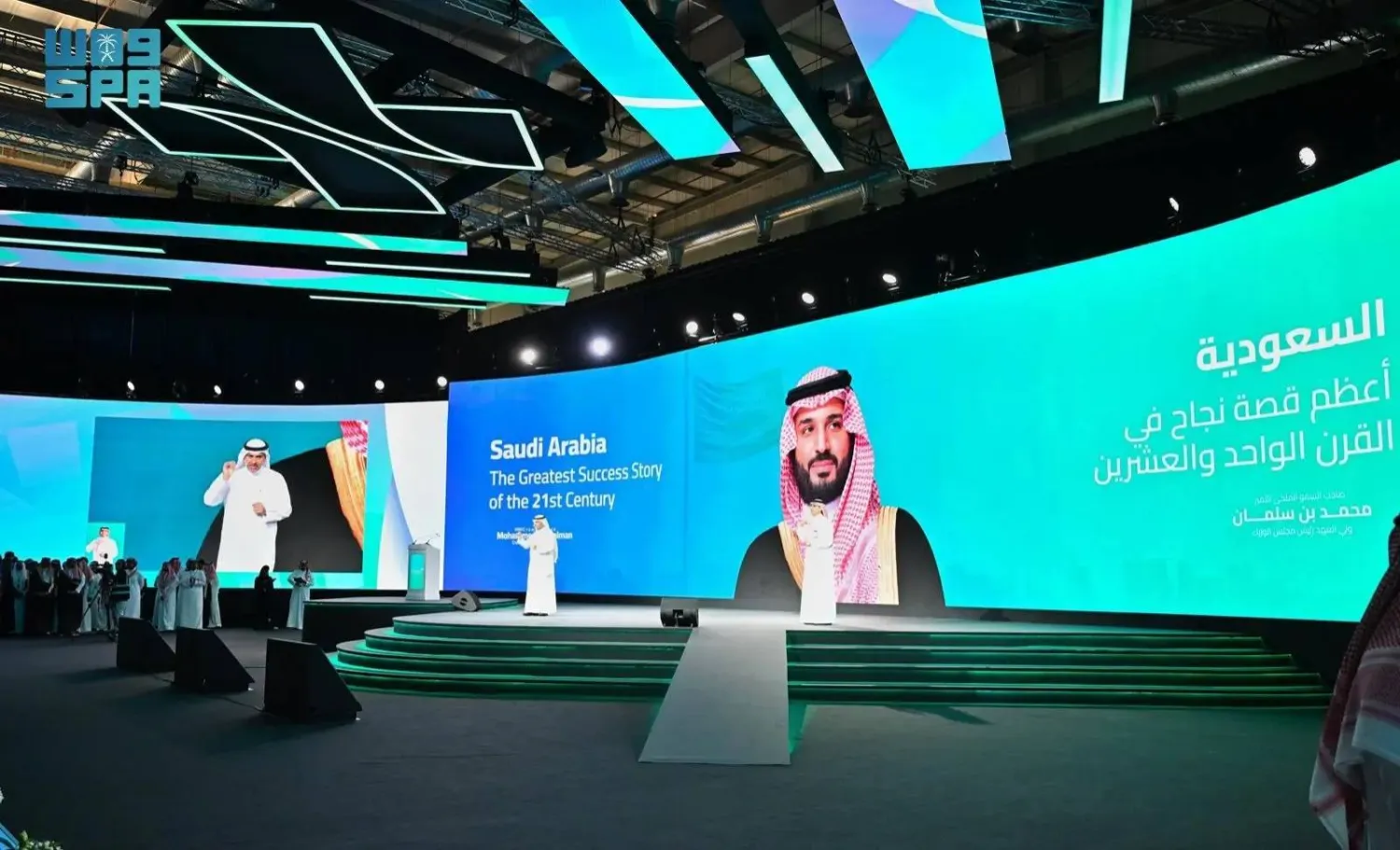The seventh edition of the Global Health Exhibition kicked off in Riyadh on Monday.
Held under the slogan "Invest in Health", the exhibition was held under the auspices of the Ministry of Health, supported by the Health Sector Transformation Program, and organized by Tahaluf, a joint venture between Informa PLC, the Saudi Arabian Federation for Cybersecurity, Programming, and Drones (SAFCSP), and the Event Investment Fund (EIF).
At the opening ceremony, Minister of Health Fahad Al-Jalajel highlighted the significance of health transformation in the sector.
"Our goal is for the Kingdom of Saudi Arabia to serve as a hub for addressing the current and future major global challenges by establishing a unified government approach under Vision 2030, in accordance with the principle of health in all policies," he stressed.
"This will be achieved by fostering the development of procedures that support investment in innovation, constructing a health system that leverages the power of digital solutions and artificial intelligence, developing a local health workforce, and attracting the best talents from around the world," he added.
"These are the motivations that drive us to advance our health transformation with practical steps and concrete actions," he went on to say.
"We are proud that the World Health Organization (WHO) has recognized Saudi Arabia's food products as being free of trans fats, placing the Kingdom at the forefront among countries receiving this recognition," he remarked.
The WHO also announced that the Kingdom, represented by the Saudi Food and Drug Authority (SFDA), is the first country in the region to achieve the fourth maturity level in the regulation of medicines and vaccines, which is the highest level in the organization's classification.
Al-Jalajel also noted the expansion of Saudi Board Programs to 170 health programs, which have now been adopted by 3,000 international practitioners.
He announced the launch of the second generation of Taakkad Centers and the digital twin, which will be part of the Sehhaty application. Additionally, he mentioned that the Seha Virtual Hospital has been registered in the Guinness Book of Records as the largest virtual health hospital in the world, and that several distinguished global medical talents have been granted premium residency opportunities.
The exhibition, which runs through October 21 to 23, announced projects valued at over SAR 50 billion, including several key initiatives. Among the most prominent was the announcement of a SAR 4 billion pharmaceutical manufacturing deal among NUPCO, Novo Nordisk, and Sanofi.
Other major projects included SAR 5 billion expansions at Fakeeh Care Group, the establishment of five primary care centers and two hospitals by Almoosa Health Group valued at SAR 3 billion, the acquisition of Al-Salam and Al-Ahsa hospitals in the Eastern Province by Dallah Health, with a total capacity of 749 beds, and the construction of Dallah Hospital in Riyadh with a capacity of 250 beds and the potential for expansion, valued at SAR 4 billion.
Several agreements and partnerships were signed on the sidelines of the exhibition, including a partnership between the Council of Health Insurance and Alfaisal University, a memorandum of understanding (MoU) between Imam Abdulrahman Bin Faisal University and the National Institute for Health and Care Research, and an MoU between the Ministry of Health, represented by the Agency of Engineering Affairs and Supply, and the National Center for Vegetation Development and Combating Desertification.









